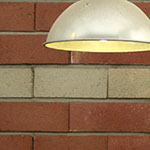Euroacademia Conferences
 Europe Inside-Out: Europe and Europeanness Exposed to Plural Observers (9th Edition) April 24 - 25, 2020
Europe Inside-Out: Europe and Europeanness Exposed to Plural Observers (9th Edition) April 24 - 25, 2020 Identities and Identifications: Politicized Uses of Collective Identities (9th Edition) June 12 - 13, 2020
Identities and Identifications: Politicized Uses of Collective Identities (9th Edition) June 12 - 13, 2020 8th Forum of Critical Studies: Asking Big Questions Again January 24 - 25, 2020
8th Forum of Critical Studies: Asking Big Questions Again January 24 - 25, 2020 Re-Inventing Eastern Europe (7th Edition) December 13 - 14, 2019
Re-Inventing Eastern Europe (7th Edition) December 13 - 14, 2019 The European Union and the Politicization of Europe (8th Edition) October 25 - 26, 2019
The European Union and the Politicization of Europe (8th Edition) October 25 - 26, 2019 Identities and Identifications: Politicized Uses of Collective Identities (8th Edition) June 28 - 29, 2019
Identities and Identifications: Politicized Uses of Collective Identities (8th Edition) June 28 - 29, 2019 The European Union and the Politicization of Europe (7th Edition) January 25 - 26, 2019
The European Union and the Politicization of Europe (7th Edition) January 25 - 26, 2019 7th Forum of Critical Studies: Asking Big Questions Again November 23 - 24, 2018
7th Forum of Critical Studies: Asking Big Questions Again November 23 - 24, 2018 Europe Inside-Out: Europe and Europeanness Exposed to Plural Observers (8th Edition) September 28 - 30, 2018
Europe Inside-Out: Europe and Europeanness Exposed to Plural Observers (8th Edition) September 28 - 30, 2018 Identities and Identifications: Politicized Uses of Collective Identities (7th Edition) June 14 - 15, 2018
Identities and Identifications: Politicized Uses of Collective Identities (7th Edition) June 14 - 15, 2018
The Old Soviet Style in the New Socio-Cultural Context of Europe
-
-

-
Presentation speakers
- Ekaterina Bagreeva, Russian Economic University of G. V. Plekhanov
Abstract:
After the dissolution of the Soviet Union, waves of migrants moved to European countries such as Norway and Germany. While some were looking for a new identity, others embraced their heritage even as they moved to a new country with a new value system, new lifestyle as well as new preferences in fashion. Even though the background for migration from the Soviet Union to these countries was similar and to a great extent based on social and economic instability and conflicts, the migrants’ expectations and aspirations were different between the two countries. Many of the migrants moving to Germany hoped that a common ethnic background would provide a feeling of “returning home” to their Motherland and facilitate the search for a German identity. This approach was not shared by the people moving to Norway, where family reunion was the main reasons for migrating. One of the goals of the project was to discover what migrants perceive to comprise a “Soviet identity” in “the way they walk, the way they talk and the way they dress”, as well as what are the features of the Soviet style and how it developed. In order to answer these and other questions, the pilot research project: “Comparative analysis of the adaptation strategies of Russian-speaking migrants in Norway and Germany”, was conducted in 2008-2010 using qualitative and quantitative sociological methods with a follow-up study in 2013. This paper will explore how the value system in a country is reflected in the way people dress, and if the Russian-speaking migrants would leave their Soviet style in search of their Europeanness, or stay true to their previous socio-cultural context. We also explore how different aspirations and reasons for migration corresponded with the migrants’ every-day practice, as well as their identity and dress styles in Norway and Germany.
-
Related Presentations

Connecting Europe with the World: Transaction Costs, Institutional Solutions, and Democratic Deficits
- Adrienne Héritier
- Yannis Karagiannis

















